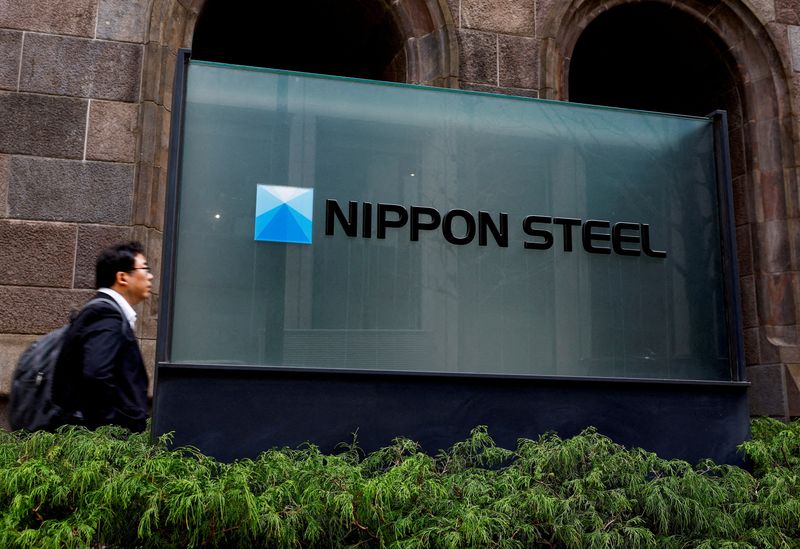By Alexandra Alper
WASHINGTON (Reuters) – Nippon Steel and U.S. Steel are unlikely to convince a court to scrap President Joe Biden’s decision to block their $14.9 billion merger, but their lawsuit could give them more time to reach a deal with incoming President Donald Trump.
The companies argued in a lawsuit announced on Monday that Biden violated the Constitution by blocking the merger via a sham national security review that deprived the companies of their right to a fair process.
Suing the government will be “an uphill battle,” said Nick Klein, a national security lawyer with DLA Piper, noting that courts are typically very deferential to the executive branch on national security issues.
Still, “the lawsuit will give them more time to negotiate with the new administration or find alternatives that are acceptable,” Klein added.
Nippon Steel declined to comment. U.S. Steel did not immediately respond to a request for comment.
The remarks show that while the lawsuit itself may be doomed, it could give the deal a new lease on life, if the companies can convince Trump to reverse his opposition.
“I am totally against the once great and powerful U.S. Steel being bought by a foreign company, in this case Nippon Steel of Japan,” he wrote on his social media platform Truth Social last month.
“I will block this deal from happening. Buyer Beware!!!”
But some lawyers see an opening. Trump “has a history of changing his mind,” said Joshua Gruenspecht, a national security lawyer with Wilson Sonsini, who also sees the lawsuit as a play for more time.
THIRTY DAYS
The order signed by Biden on Friday gives the companies 30 days to unwind their transaction. While the companies do not explicitly ask the courts to stay the order, they state in a copy of the complaint shared with Reuters that they intend to ask the government if it plans to enforce the 30-day requirement.
If it does, the companies could seek “preliminary relief,” the document states. Meanwhile the merger agreement includes an end date of June 18 to obtain regulatory approvals and complete the merger.
DUE PROCESS RIGHTS
The companies claim a national security review led by the Committee on Foreign Investment in the U.S., which scrutinizes foreign investments for national security threats, was unfairly influenced by Biden, who took aim at the deal in March before the review began.
His opposition to the deal, they allege, was aimed at currying favor with United Steelworkers President David McCall, whose endorsement he hoped would help him clinch the swing state of Pennsylvania in the U.S. presidential election in November. U.S. Steel is headquartered there. Biden was later replaced on the ticket by Vice President Kamala Harris, who also opposed the deal and was endorsed by the USW.
The White House and the USW reject the allegations. But the companies say those facts amount to CFIUS and Biden violating their due process rights under the constitution as well as CFIUS statute, for prejudging the case and not basing the decision on true national security risks.
The president, through the committee, “shall review (the deal) to determine the effects of the transaction on the national security of the United States,” the statute states.

But the fact that the CFIUS statute explicitly bars courts from reviewing presidential decisions, coupled with courts’ high degree of deference on national security decisions, means the companies are in a tough spot, according to Tatiana Sullivan, a former CFIUS official at the Pentagon and national security lawyer with Skadden Arps.
However, she noted that the companies’ arguments that “the President’s actions and public comments corrupted the CFIUS process and thus created due process violations are novel claims for the courts to consider.”